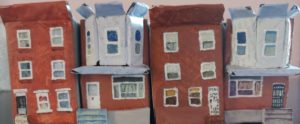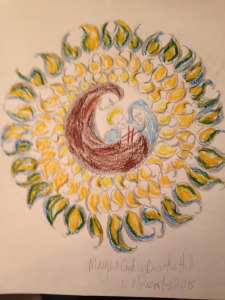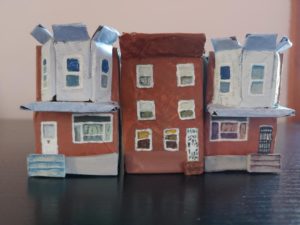
Readings: Isaiah 7:10-16; Psalm 80:1-7, 17-19; Romans 1:1-7; Matthew 11:2-11
“She will bring a son to birth, and when she does, you, Joseph, will name him Jesus—‘God saves’—because he will save his people from their sins.” Matthew 1: 21 (The Message).
There was poor Joseph in a quandary. He had just discovered that his young bride was pregnant and they were about to get married. He loved her so much that he went to work to quietly take care of things so she would not be disgraced. Still, though, what to do? Then THE dream. God’s angel cleared things up in no uncertain terms: “Get married, the child is from God’s spirit, name him Jesus.” This must have been a pretty convincing dream because Joseph followed these commands to a T.
I’m told that Jesus was a rather common name for a boy in those days and in that region. But the name now takes on a special kind of meaning and eventually Christians grew to know Jesus as the one who saves us from our sins just as the angel told Joseph.
As a youth down in Tennessee, many of my Sunday nights at the old Broad Street Methodist Church were spent singing hymns out of the Cokesbury Hymnal and one of our favorites was Priscilla Owen’s classic gospel hymn “Jesus Saves”(she wrote the lyrics) which goes from a personal embracing of this message to one to which the nations and all of nature attest. The final verse proclaims:
Give the winds a mighty voice: Jesus saves! Jesus saves!
Let the nations now rejoice: Jesus saves! Jesus saves!
Shout salvation full and free, highest hills and deepest caves;
This our song of victory: Jesus saves! Jesus saves!
On this last Sunday of Advent, I also think of another song penned by Mark Lowry some one hundred years later:
Mary did you know that your baby boy would one day walk on water?
Mary did you know that your baby boy would save our sons and daughters?
Did you know that your baby boy has come to make you new?
This child that you’ve delivered, will soon deliver you
May we all experience this new birth in ourselves during these Holy-days.
Offered by Bill Albritton, singer, teacher, traveler walking home to Bethlehem.
[Four Rowhouses, 2018-2019, by Colin Fredrickson]





